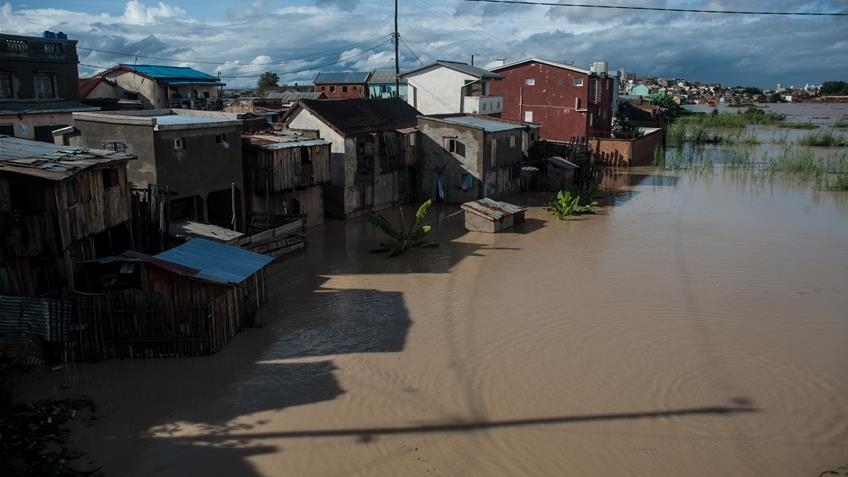Death toll in Madagascar from Cyclone Batsirai rises to 96
At least 70,350 people displaced by storm, says disaster management agency

KIGALI, Rwanda
The death toll in Madagascar from Tropical Cyclone Batsirai rose to 96 on Tuesday, with one lawmaker warning of further casualties.
Jean Brunelle Razafintsiandraofa, a deputy lawmaker for Ikongo district, reported a total of 96 deaths.
He told Malagasy National Radio that his information came from various sources including parliamentary assistants, mayors and heads of local councils.
"Many houses were demolished, and this destruction has led to death for the residents of Ikongo," he wrote on Facebook.
Razafintsiandraofa also noted that searches are underway for the missing.
“Now the district is flooded and completely isolated and the population is facing the worst,” he said, referring to the human and material toll.
The National Bureau of Risk and Disaster Management said 70,355 people were displaced by the storm, which brought heavy rains and winds to the country’s eastern coastline over the weekend.
Deaths were reported in Fitovinany, Haute Matsiatra, Vakinankaratra and Vatovavy regions, it said.
The most affected area was the southeastern city of Mananjary, where strong winds and rain destroyed homes and damaged infrastructure, including schools and hospitals.
Cyclone Batsirai made landfall Saturday near Mananjary, around 530 kilometers (329 miles) from Antananarivo, around 8:00 p.m. local time, the agency said.
Gusts reached speeds of 235 kilometers per hour (146 miles per hour) with high waves battering coastal areas, according to the country's meteorological agency.
The cyclone weakened as it moved inland, with winds scaling back to around 110km/h (68 mph).
It was the second major storm in a week after Tropical Storm Ana struck the Indian Ocean island last month, killing 55 people and displacing more than 110,000 others.
Last month, nearly 80 people were killed following tropical storms in the three southern African countries of Madagascar, Mozambique and Malawi.
According to experts, extreme weather events such as cyclones could become more regular, attributable to climate change.
Pasqualina Di Sirio, the World Food Program (WFP) director for Madagascar, told reporters ahead of the storm that she anticipated “a major crisis.”





